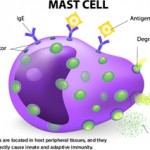A More Meaningful Patient-Clinician Relationship
It is not just the cerebral element of immunology that aids us as rheumatologists. Knowledge of clinical immunology is very much an important aspect of being a practicing rheumatologist. When a patient asks a question, I feel like I should have a mastery of material to allow me to confidently answer their concerns. Patients are highly discerning and they are well aware of whether their clinicians know what they are talking about, or whether they are simply following an if-then algorithm in their mind.
During the earlier days of the pandemic, this was particularly critical with respect to vaccines. Many of my patients had very legitimate concerns about mRNA vaccines, a technology that was relatively novel to them. Rather than dismissing these concerns, I felt empowered by my knowledge of immunology to have detailed conversations about how vaccines impact their immune systems, especially those with complex disorders of immune dysfunction. Providing additional, expert information they otherwise could not obtain through generic advice from the internet and social media enabled them to make a more informed choice about vaccination.
Somewhat paradoxically, greater knowledge of immunology also enables us to speak to those with less knowledge of immunology. When we are better able to express the knowledge of immunology in more accurate metaphors and stories, we are better able to connect with our patients. The hegemonic view of autoimmunity being excess immune responses is simple, but is horribly inaccurate and, at times, confusing to patients. Don’t our patients deserve to get a more accurate view of what is causing their diseases? The only way we can answer that question is to delve deeper into the world of immunology.
A Bridge to Other Rheumatologists
It’s not only the patients who benefit from a rheumatologist who is knowledgeable of the immune system. So much of the nomenclature and terminology is based in immunology, down to the connotations of the seemingly random combinations of numbers. It’s one thing to know what interleukin 8, interferon-α, TGF-β, and CXCL8 are. It’s another to know that CXCL8 and IL-8 are actually the same thing. Without this degree of knowledge, the rheumatologist is dependent on another person to control the flow of information. Even with all the information available at our fingertips within smartphones, without the familiarity with, and instant access to this knowledge, we can be led astray in even casual conversations.


